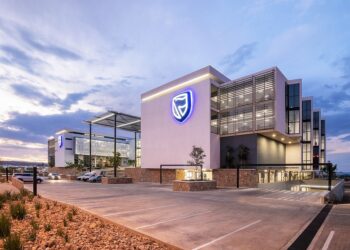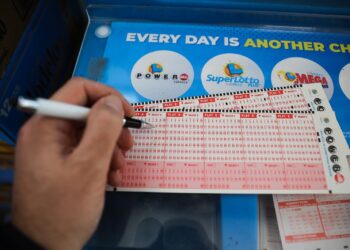
Ohorongo Cement’s planned sale to rival Whale Rock Cement is the result of a persistent production surplus, sluggish domestic demand, and tightening export markets, the company’s Managing Director has revealed.
Hans-Wilhelm Schütte, Managing Director of Ohorongo Cement, said Namibia’s annual cement consumption remains around 600,000 tonnes, compared to installed production capacity of 2.6 million tonnes, a mismatch that has created sustained oversupply pressure.
“The so-called cement mountain has made the industry economically unsustainable. Even under the most optimistic growth, one plant is more than enough to supply the entire country,†Schütte said.
“We have raw materials for 300 years, but this surplus makes operations economically unsustainable long-term.â€
The deal involves Whale Rock Cement (Pty) Ltd acquiring the full shareholding of Schwenk Namibia (Pty) Ltd from German parent company Schwenk Zement International GmbH & Co. KG. Whale Rock operates a plant near Otjiwarongo under the “Cheetah Cement” brand, while Ohorongo is the country’s oldest operational producer, based in the north.
Schwenk Namibia also owns Energy for Future (Pty) Ltd, which supplies biomass energy exclusively to Ohorongo through bush-to-energy conversion.
Schütte explained that export options have narrowed significantly.
“Angola has kept its cement import ban in place for more than five years, shutting us out entirely. Botswana will ban 50kg cement bag imports from August 2025, which will directly affect our export volumes,†he said.
He added that exports to South Africa remain costly due to high electricity prices and the long overland haul to Walvis Bay.
“Exporting has become unviable. We’re too far from ports and face restrictive policies in neighbouring countries. We’ve exhausted options to grow regionally,†he said.
The open import regime in Namibia has further complicated matters, according to Schütte.
“During its earlier monopoly years, Ohorongo nearly collapsed under import pressure. Without safeguards, the same could happen again. We’ve seen the damage unregulated imports can do.â€
He said Ohorongo has cut its workforce by half, from over 410 employees to around 200 and shelved support for SMEs and plans for a local packaging facility.
“High fixed costs demand high volumes. Without them, we face job losses and might have to switch to importing clinker, which would erase 60% of local value addition,†Schütte said.
Concerns have been raised about the potential for a monopoly as Whale Rock Cement is currently Ohorongo’s only domestic competitor, however, Schütte dismissed suggestions that Ohorongo abused its former market position.
“Our prices followed inflation and were benchmarked against producers in Gauteng, Cape Town, Zimbabwe, and Angola. There was no abuse of market power,†he said.
He also stressed that the company meets Namibian standards and is subject to regular quality audits from institutions in Germany, Botswana and South Africa.
The timing of the sale was also influenced by Schwenk’s shift in strategic focus to investments in Northern Europe and the Baltics. Schütte said the buyer was selected carefully.
“It took years to find a buyer who met all three criteria: capital strength, cement expertise, and a commitment to Namibia,†he said, adding that existing minority shareholders, including development finance institutions like the Development Bank of Namibia, will remain unchanged.
Schwenk Namibia currently holds nearly 70% of Ohorongo’s equity.
The Namibia Competition Commission (NaCC) has issued preliminary findings on the merger, flagging potential risks to market competition.
“This is a horizontal merger. It removes one of only two players in a national market. That’s a serious concern,†said Johannes Ashipala, the Commission’s Director of Mergers and Acquisitions.
Ashipala noted that the inquiry is ongoing and no final decision has been made. “We are still gathering information. This process is transparent and evidence-based. The decision must serve Namibia’s long-term interests.â€
The Commission’s final ruling will determine whether the sale can go ahead as planned.











